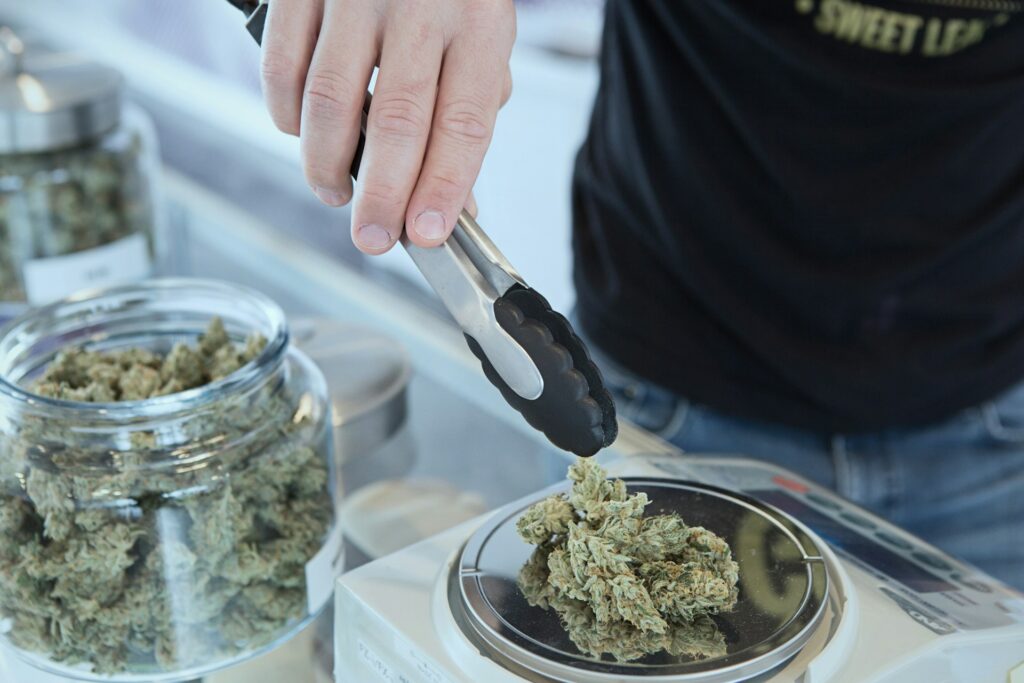A pioneering study in rural Michigan on the free distribution of cannabis as a harm reduction strategy is attempting to reduce substance abuse to address the drug overdose crisis. Despite facing regulatory challenges, the positive outcomes and potential for sustainability have highlighted the need for further research to fully understand the impact of such programs on public health.
Distributing Free Cannabis May Aid in Reducing the Drug Overdose Crisis


Free cannabis distribution is being trialed as a solution to the ongoing drug overdose crisis. This is in response to traditional harm reduction strategies such as needle exchange programs and the provision of naloxone which, although essential, have proven to be insufficient in fully addressing the issue. This has raised the question of alternative approaches that could contribute to diminishing the scale of the crisis.
The innovative idea of free cannabis distribution, a concept explored in rural Michigan, is being tested in a pioneering study in the United States. The goal is to trial free cannabis as a harm reduction practice and, so far, has indicated significant potential. It is, however, contingent, on state laws.
For more news like this, along with all the latest in legalization, research, and lifestyle, download our free cannabis news app.
Understanding Michigan’s Free Cannabis Program
The free cannabis distribution study, conducted between September 2021 and May 2023, focused on ten clients experiencing harm related to psychoactive substance use, who regularly received cannabis. Distribution was through both personal pickups and deliveries, with clinical staff selecting participants based on their interest in the program. This selective procedure aimed to maximize the potential benefits of participation.
Observed Benefits of Using Cannabis for Harm Reduction
The free cannabis study cites specific participant cases that highlight observed benefits. For example, an individual over 50, post-spinal surgery, reported complete abstinence from alcohol during recovery, crediting the program for providing cannabis cream for pain relief, vaporizer cartridges, and smoking material.
Another case involved a pregnant young woman, homeless, and addicted to methamphetamine and opioids, who reduced her use of these substances thanks to the program while collaborating with agency staff to begin treatment for opioid use disorders. The free cannabis study also notes benefits observed by staff, such as reduced premature mortality, improved quality of life, pain relief, enhanced healing processes, and increased safety for both clients and the community.
Challenges and Potential for Sustainability
Programs like Michigan’s face numerous challenges, mainly due to regulations governing cannabis distribution and regulation. Despite these obstacles, the study points to a significant potential for such initiatives in terms of sustainability, dependent on state law regulations and the willingness of cannabis companies to collaborate.
Free Cannabis – Broader Implications and the Need for Further Research
Despite the promising results of the free cannabis program in Michigan, the authors emphasize the need for further research to fully understand the impact of cannabis donation programs on individual health outcomes and public health. It’s noteworthy that existing studies associate cannabis legalization with reduced opioid and alcohol use, suggesting that expanding access to legal cannabis may offer a safer alternative for people using psychoactive substances without a prescription.
Summary
The free cannabis distribution program in Michigan sheds light on the potential role of cannabis as a harm reduction strategy in the context of the drug overdose crisis. Despite legal and distribution challenges, the observed benefits and positive relationships with program participants indicate significant potential for this initiative. The need for further research is evident, but this program already represents an important step towards considering cannabis as a component of harm reduction strategies.
—
(Featured image by Budding . via Unsplash)
DISCLAIMER: This article was written by a third-party contributor and does not reflect the opinion of Hemp.im, its management, staff, or its associates. Please review our disclaimer for more information.
This article may include forward-looking statements. These forward-looking statements generally are identified by the words “believe,” “project,” “estimate,” “become,” “plan,” “will,” and similar expressions. These forward-looking statements involve known and unknown risks as well as uncertainties, including those discussed in the following cautionary statements and elsewhere in this article and on this site. Although the company may believe that its expectations are based on reasonable assumptions, the actual results that the company may achieve may differ materially from any forward-looking statements, which reflect the opinions of the management of the company only as of the date hereof. Additionally, please make sure to read these important disclosures.
First published in Fakty Konopne, a third-party contributor translated and adapted the article from the original. In case of discrepancy, the original will prevail.
Although we made reasonable efforts to provide accurate translations, some parts may be incorrect. Hemp.im assumes no responsibility for errors, omissions or ambiguities in the translations provided on this website. Any person or entity relying on translated content does so at their own risk. Hemp.im is not responsible for losses caused by such reliance on the accuracy or reliability of translated information. If you wish to report an error or inaccuracy in the translation, we encourage you to contact us.



Comments are closed for this post.